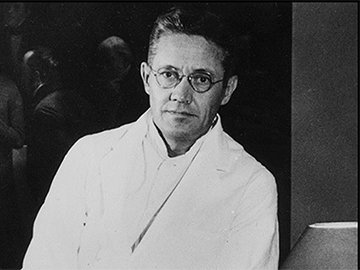Annual Beecher Prize in Medical Ethics
Critical Ethical Analysis of Contemporary Medical Issues
The Beecher Prize continues Dr. Henry K. Beecher's legacy of critical ethical analysis of contemporary medical issues by awarding a prize of $1,500 to a Harvard Medical School or Harvard School of Dental Medicine student for the best scholarly essay on any topic in ethics and medicine. Honorable mentions are awarded $500 prizes. Submitted essays are judged by a blind panel with expertise in medical ethics.

About Dr. Henry K. Beecher
Henry Knowles Beecher, MD, Henry Isaiah Dorr Professor of Anaesthesia, was the first professor of anaesthesia at Harvard. He was an indefatigable clinician, educator, and investigator. His provocative work in the 1950's included work on the effects of placebos in medicine and research. Dr. Beecher helped launch the modern field of medical ethics with his 1966 New England Journal of Medicine article, "Ethics and Clinical Research," which exposed widespread ethical violations in research using human subjects. Many of these studies had been published in leading peer-reviewed medical journals and supported by agencies of the U.S. Government. His paper catalyzed major and enduring ethical reforms in human experimentation and patients' rights. You can read more about Dr. Beecher and his work in Harvard Magazine.
2025 Beecher Prize Applications Currently Open
Eligible essays will have been written this academic year and should not have been previously published. Students may submit an original piece of writing or work done for a class. Authorship should be the student's alone. Papers should be double-spaced in 11-point font with 1" margins and include page numbers. Ten to twelve pages is the suggested length, with a 15-page maximum.
Entries must be emailed by 11:59 PM ET on Sunday, April 6, 2025:
- Send to: beecher_prize@hms.harvard.edu
- Subject line: "Attn: Beecher Prize Committee"
Criteria for judging essays:
- Clear presentation of the ethical issue and its importance, including its historical and social context.
- Ethical analysis of alternative approaches to the issue.
- Ethical justification of any concluding recommendations.
- Originality of thought; scholarly rigor.
- Clarity of expression and quality of writing.